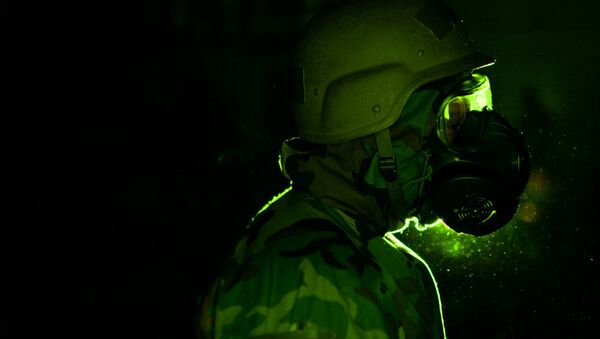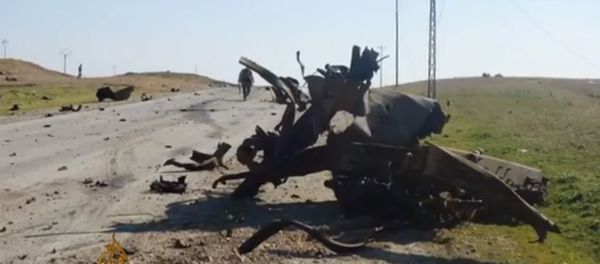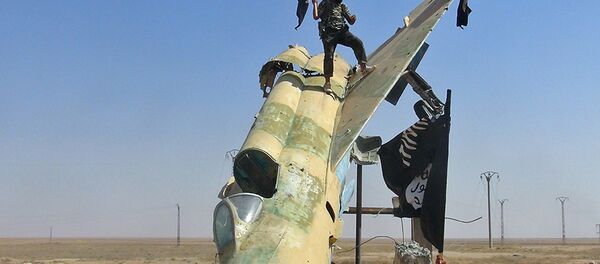Hamish de Bretton-Gordon, formerly of the Joint Chemical Biological Radiological Nuclear Regiment, has been keeping an eye on developments in the Middle East, and says that there has been an increase in chemical use in the region recently.
"The last two weeks in Syria and Iraq have seen the most concentrated and deadly use of chemical weapons since the Iran/Iraq war and Saddam Hussein's era of 'gassing the Kurds' in the Kurdistan Region of Iraq," he wrote in the online publication 2paragraphs.
"There have been hundreds of chlorine IEDs (improvised explosive devices) planted by ISIS in the defence of Tikrit and a major vehicle-born chlorine explosive device detonated north of Mosul against the Peshmerga, and in Syria, chlorine barrel bombs have killed 6 and injured over 70," he added.
Now up in MNL #Protect2015: Hamish De Bretton-Gordon, British officer in Afghanistan, Iraq, Syria, now doing CBRN pic.twitter.com/rVQGt6TsO4
— Maria Ressa (@maria_ressa) March 23, 2015
Threat to the West
And while the increase of chemical weapon use is an instant danger to those close to areas of unrest in the Middle East, Mr Bretton-Gordon believes it also poses a danger to people in the UK, Europe and the US, where large numbers of jihadists are returning home.
"It is very evident that ISIS are putting much time and effort into training its jihadists in the use of chlorine as a terror weapon and in particular in IEDs. Virtually every foreign jihadi who returns to the US or UK will have been exposed to training of this sort and will have a reasonable idea of how to use chlorine and other toxic chemicals as a terror weapon."
"In the UK at least, up to 90 tonnes of chlorine can be purchased without any licences required," he said.
Jihadists Could Set Off Gas Attack
The comments come amid the 20th anniversary of the Tokyo subway attack, which saw gas released onto Tokyo trains during peak hour, resulting in the death of 12 people, with more than 1,000 injured.
ISIS has expressed a desire to obtain CBRN weapons #Protect2015 pic.twitter.com/y2lQJekiEJ
— Maria Ressa (@maria_ressa) March 23, 2015
Mr Bretton-Gordon believes a similar attack in London or other major cities in the West is a real possibility.
"The method of delivery of chlorine at the 2nd Battle of Ypres in April 1915, a hundred years ago would be effective on the subway today; that is, take the top off a chlorine canister and let it 'vapourise' aka 'weaponise'.
"Yes, ISIS could replicate the Tokyo gas attacks in the UK and US relatively easily."
Mr Bretton-Gordon, who also works with UK-based charity Syria Relief, says that the effects of any such attack should however be fairly minimal, if security agencies are "forewarned and forearmed" to the threats.
"Undoubtedly, and hopefully the CIA, FBI, MI5 & 6 etc. will be taking a very close look at returning jihadis and in particular anybody buying toxic chemicals."
The use of chlorine gas, first used during World War I, is banned under the 1997 Chemical Weapons Convention, however monitors of the conflict in Syria say that such gases have been used "systematically" in Syria's ongoing civil war.
The West has accused forces of Syrian leader Bashar al-Assad of using chemical weapons on the general population, which has led to the US providing support to so-called "moderate" rebel groups in the country.





